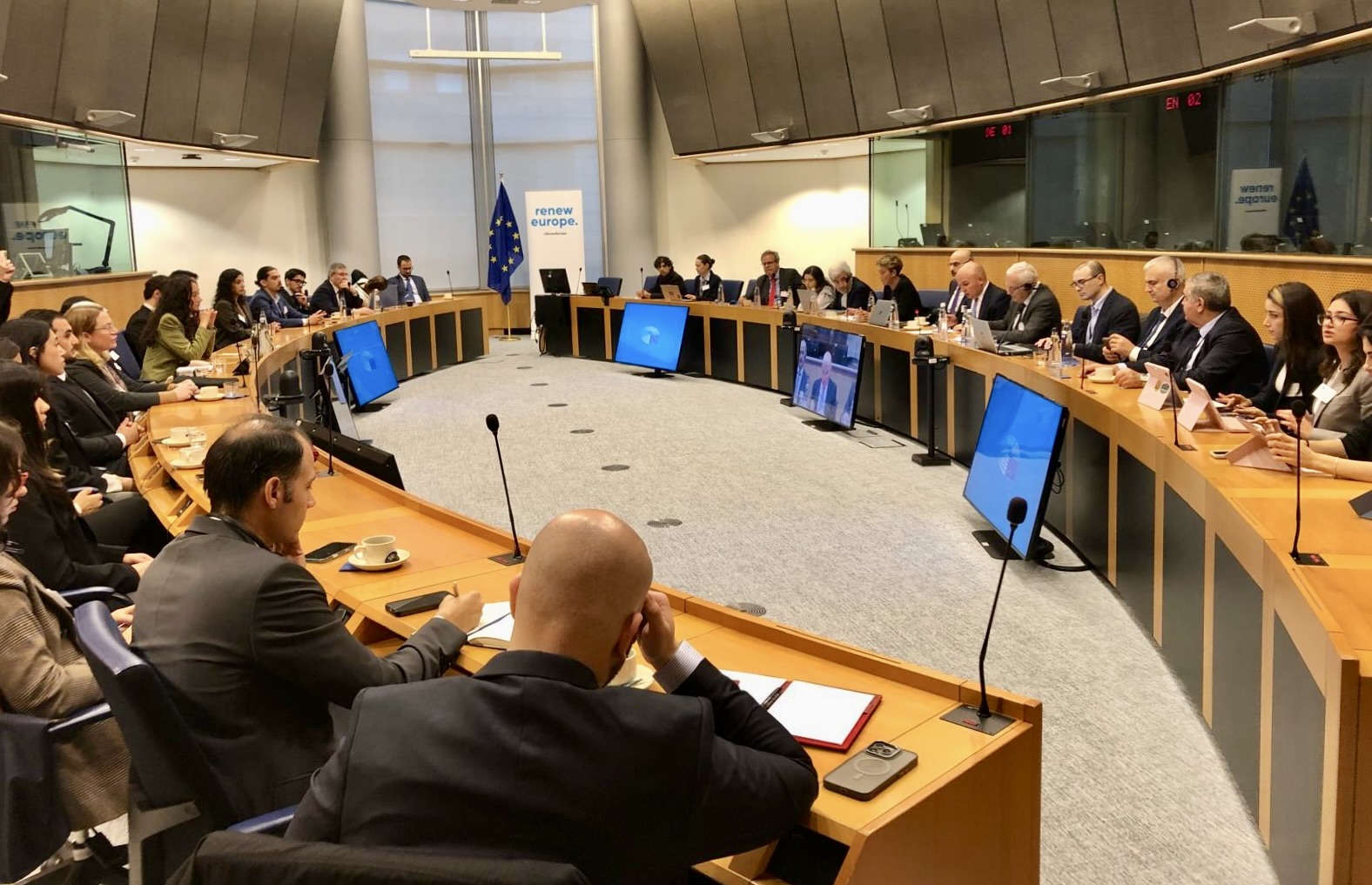
VATAN-Vertreter besuchen das FUEN-Büro in Brüssel und machen im Europäischen Parlament auf ihre Anliegen aufmerksam
02.10.2025Am 1. Oktober besuchten Vertreter der Öffentlichen Organisation der Meschetischen Türken „VATAN“, einer FUEN-Mitgliedsorganisation und Mitglied der Arbeitsgemeinschaft Türkischer Minderheiten/Gemeinschaften (TAG), das FUEN-Büro in Brüssel. Die Gespräche konzentrierten sich auf die langjährigen Herausforderungen der Meschetischen Türken, die 1944 auf Befehl des sowjetischen Führers Josef Stalin aus Georgien deportiert wurden und seither verstreut in neun Ländern auf drei Kontinenten leben. Trotz der internationalen Anerkennung ihres Rückkehrrechts stoßen sie weiterhin auf Hindernisse bei der Rücksiedlung in ihre angestammte Heimat.

Der Besuch folgte auf eine Konferenz im Europäischen Parlament am 30. September mit dem Titel „Georgia’s Euro-Integration: The Meskhetian Turks Question as a Benchmark for EU Standards Compliance“. Die Veranstaltung wurde vom bulgarischen Europaabgeordneten Ilhan Kyuchyuk (Renew Europe) ausgerichtet und von VATAN im Rahmen ihrer Sensibilisierungsaktivitäten in Brüssel organisiert. Dabei wurde hervorgehoben, dass Georgien zwar 2007 ein Repatriierungsgesetz verabschiedete, jedoch der Großteil der von Meschetischen Türken eingereichten Anträge abgelehnt wurde, wodurch der Gemeinschaft ein praktischer Weg zur Rückkehr verwehrt bleibt.
Im Europäischen Parlament betonten die VATAN-Vertreter Fuad Pepinov und Ansar Usmanov, dass das Gesetz in der Praxis als „Rückkehrverhinderungsgesetz“ fungiere. Sie wiesen darauf hin, dass überstaatliche Organisationen wie die Vereinten Nationen, der Europarat und die OSZE die Defizite Georgiens wiederholt bestätigt hätten, ihre Empfehlungen jedoch weitgehend unbeachtet geblieben seien. VATAN forderte daher Georgien auf, das Thema im Rahmen seines EU-Beitrittsprozesses ernsthaft anzugehen und die Meschetischen Türken als Opfer anzuerkennen, deren Rechte wiederhergestellt werden müssen.

Nach Einschätzung der FUEN-Expertinnen und -Experten beim Treffen könnten die Instrumente des EU-Beitrittsprozesses zusammen mit den bereits gewährten Heranführungshilfen wirksam dazu beitragen, die Minderheitenrechte zu stärken. Um greifbare Fortschritte zu erzielen, seien politischer Wille, ein funktionierender Rechtsrahmen und ein Fahrplan erforderlich, der durch EU-Mittel unterstützt wird.
Pressemitteilungen
- FUEN fordert Berücksichtigung der ladinischen Sprache bei den Olympischen Winterspielen 2026
- FUEN fordert UN-Sonderberichterstatter auf, sich für einen kohärenten EU-Rahmen zum Schutz von Minderheiten einzusetzen
- Die FUEN wünscht Ihnen ein friedliches Weihnachtsfest, erholsame Feiertage und einen guten, zuversichtlichen Start ins neue Jahr!
- FUEN fordert die EU zum Handeln gegen systematische ethnisch begründete Landenteignungen in der Slowakei auf
- Women of Minorities-Konferenz in Budapest fordert strukturelle Veränderungen für die gleichberechtigte politische Teilhabe von Frauen aus den Reihen nationaler Minderheiten
- FUEN-Präsidentin Olivia Schubert beim UN-Forum für Minderheitenfragen in Genf
- „Laboratorium des Friedens“: 28. Seminar der slawischen Minderheiten in der Europäischen Kulturhauptstadt Gorica/Gorizia
- Equality in Political Participation and Representation: Drittes „Women of Minorities“-Treffen findet in Budapest statt
- FUEN-Arbeitsgemeinschaft Bildung diskutiert Herausforderungen und Zukunftsperspektiven des Minderheitenunterrichts in Europa
- 28. Seminar der slawischen Minderheiten in Europa findet in Gorica/Gorizia (Italien) statt














